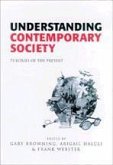With a foreword by David Riesman, author of The Lonely Crowd. Introducing a new term to the sociological lexicon: 'postemotionalism', Stjepan Mestrovic argues that the focus of postmodernism has been on knowledge and information, and he demonstrates how the emotions in mass industrial societies have been neglected to devastating effect. Using contempoary examples, the author shows how emotion has become increasingly separated from action; how - in a world of disjointed and synthetic emotions - social solidarity has become more problematic; and how compassion fatigue has increasingly replaced political commitment and responsibility. Mestrovic discusses the relation between knowledge and the emotions in thinkers as diverse as Durkheim, Baudrillard, Ritzer, Riesman, and Orwell. This stimulating and provocative work concludes with a discussion of the postemotional society, where peer groups replace the government as the means of social control.
As Mestrovic rightly notes, the missing ingredient in most sociological theorising is the role of the emotions. In this respect, Postemotional Society exemplifies both the importance and the dilemmas involved in the sociological study of emotions in social life... Drawing upon an eclectic variety of sources, from Durkheim to Baudrillard, Riesman to Ritzer, Doestoevsy to Orwell, Mestrovic argues that modernity's diametrically opposed tendencies towards order and chaos have resulted in a new hybrid world of rationally ordered, McDonaldised emotions... An insightful, thought-provoking book. Simon J. Williams, University of Warwick








